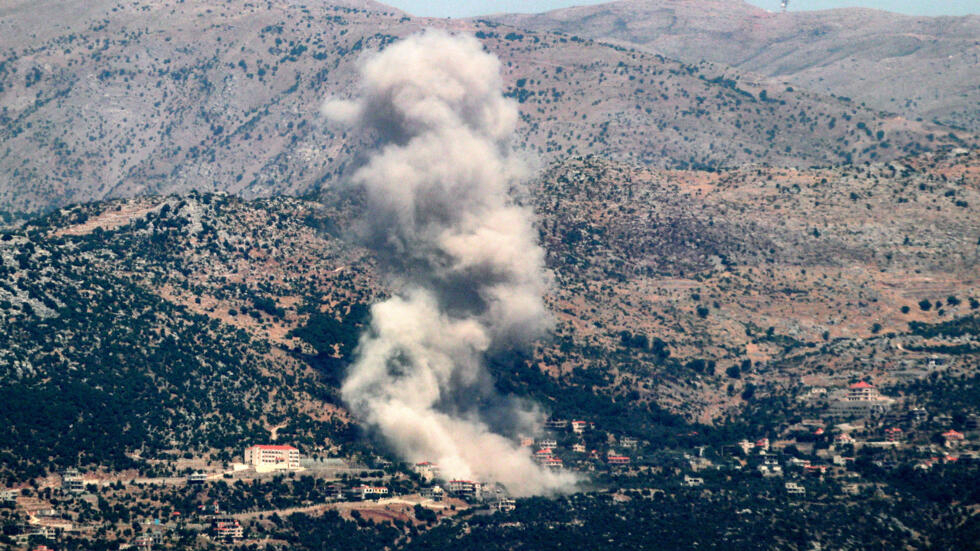News Flash
News Flash

GAZA STRIP, Palestinian Territories, June 27, 2024 (BSS/AFP) - Israel launched air strikes on Gaza Thursday after warning Hezbollah, Hamas's ally in Lebanon, to avoid a large-scale war that would send the neighbouring country "back to the Stone Age".
Defence Minister Yoav Gallant made the comment during a visit to Washington, where he discussed the Gaza war, long-running efforts toward a truce, and ways to avoid a wider regional conflagration.
As cross-border tensions between Israel and Iran-backed Hezbollah have risen, Gallant stressed that "we do not want war, but we are preparing for every scenario".
"Hezbollah understands very well that we can inflict massive damage in Lebanon if a war is launched," he said of the Shiite militant group that, like Hamas, is backed by Israel's arch foe Iran.
Israel and Hezbollah have traded near daily cross-border fire since Hamas launched its October 7 attack that sparked the bloodiest ever Gaza war.
But tensions have surged since Israel said this month that its Lebanon war plans are ready, sparking threats from Hezbollah that, in the event of all-out war, none of Israel would be safe.
US Defense Secretary Lloyd Austin told Gallant this week that a war with Hezbollah could have "terrible consequences for the Middle East" and urged a diplomatic solution.
UN humanitarian coordinator Martin Griffiths warned that Lebanon was "the flashpoint beyond all flashpoints" and that a full war would be "potentially apocalyptic".
Germany has joined Canada in advising its citizens in Lebanon to leave the country, reiterating warnings first issued shortly after October 7.
In the latest clashes on Wednesday, Lebanese media reported about 10 Israeli strikes near the border while Hezbollah claimed six attacks against Israeli military positions.
A US official said Washington was engaged in "fairly intensive conversations" with Israel, Lebanon and other actors and believed that no side sought a "major escalation".
- 'Running in terror' -
Meanwhile, the Gaza war at the heart of regional tensions ground on, despite comments Sunday by Israeli Prime Minister Benjamin Netanyahu that the "intense phase" of the conflict was nearing an end.
Israeli air strikes overnight and early Thursday killed at least five people in Gaza City, said the Hamas-ruled territory's civil defence agency and Al-Mamdani hospital medics.
One person was killed when a warplane bombed a house in Beit Lahia, paramedics said.
Heavy fighting, artillery shelling and helicopter fire were reported Thursday around northern Gaza's Shujayia market, as well as approaching Israeli ground vehicles.
Hamas' press office in Gaza reported "a significant displacement of residents" there and said people "are fleeing to areas of refuge in Gaza City that are already overcrowded".
An anonymous witness told AFP the situation was "very difficult and frightening in Shujayia after the arrival of occupation (Israeli) vehicles and air fire.
"Residents are running through the streets in terror... a number of wounded and martyrs lie in the streets."
Shelling also targeted Gaza City, sending plumes of smoke into the sky, and Israeli forces blew up several buildings in far-southern Rafah, witnesses said.
The Israeli military also said it had "attacked terrorists who were in a school complex in Khan Yunis" in the south, where the civil defence agency said it had recovered several bodies.
US officials including Secretary of State Antony Blinken have voiced hope a Gaza ceasefire could also lead to a reduction in hostilities on the Lebanese border.
However, months of talks towards a truce and hostage release deal have so far failed as Israel has rejected Hamas demands for a permanent end to fighting and full troop withdrawal.
- 'Beyond anything I've seen' -
The war started with Hamas's October 7 attack on southern Israel, which resulted in the deaths of 1,195 people, mostly civilians, according to an AFP tally based on Israeli figures.
The militants also seized about 250 hostages, 116 of whom remain in Gaza although the army says 42 are dead.
Israel's retaliatory offensive has killed at least 37,765 people, also mostly civilians, according to data from Hamas-run Gaza's health ministry.
The war and siege have triggered a dire humanitarian crisis, with Gaza hospitals struggling to function, and food, drinking water and other essentials hard to come by.
USAID officials said Wednesday that just 1,000 of the 7,000 tonnes of aid shipped from Cyprus to Gaza had been distributed, blaming looting and security problems.
Gaza's humanitarian crisis is intense, said US doctors and nurses returning from the territory, who reported patients in the few remaining hospitals were dying in large numbers.
One of the volunteer medics, former US army combat surgeon Adam Hamawy, said he had worked in many war-torn and natural disaster-hit countries in the past 30 years.
"But the level of civilian casualties that I experienced was beyond anything I'd seen before," the 54-year-old told AFP.
"Most of our patients were children under the age of 14," he said. "This has nothing to do with your political views."